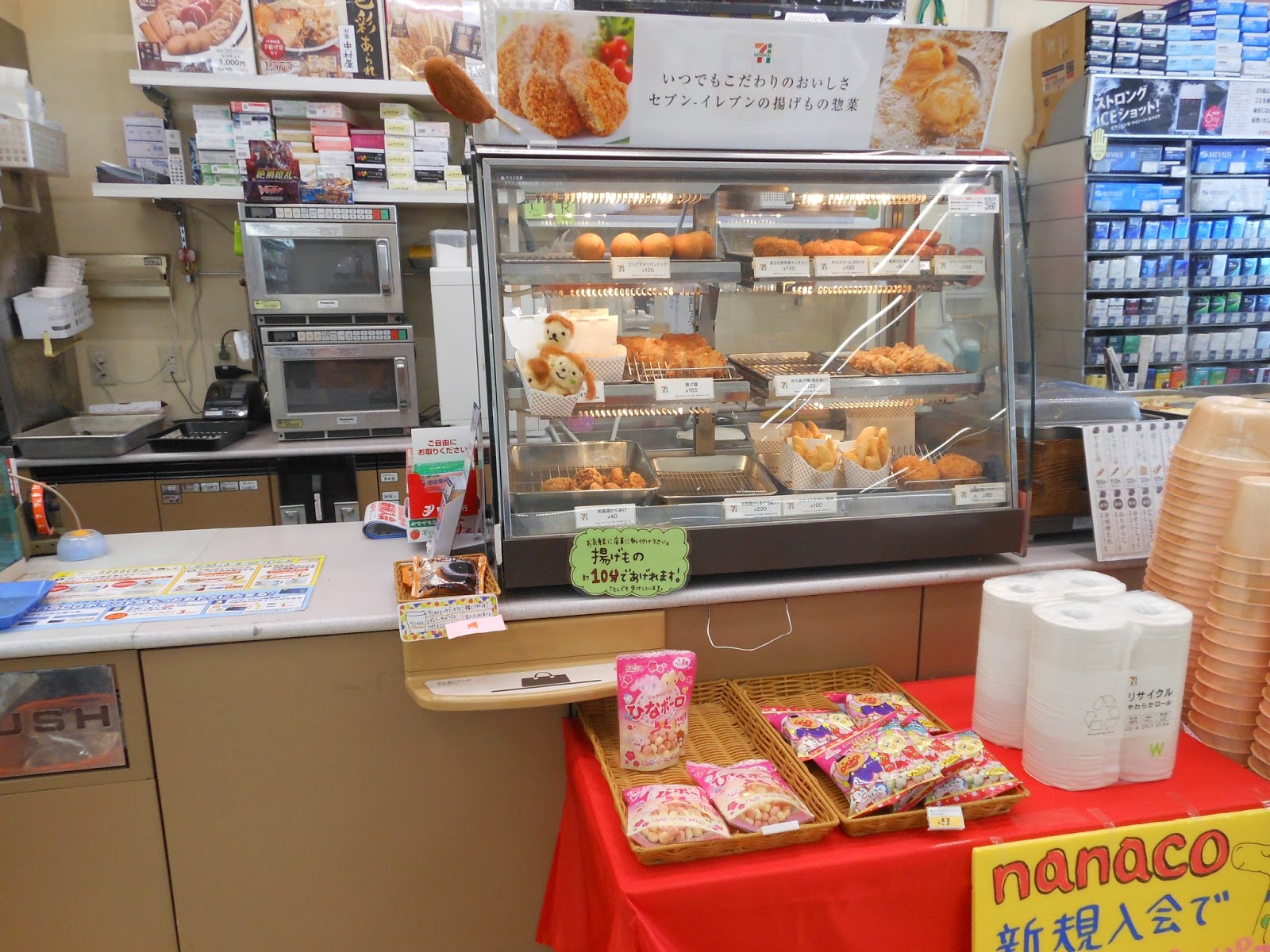Umbrella stands where you can lock your umbrella so it that it can't be stolen
a stop sign
to make the most of the space available
most cars tend to have a boxier or more compact shape
rain water runs down these
everyone talks about the toilets when they come to Japan
toilets tend to come with their own control panel, and seats are often heated to be warm
these things make noise so that people won't hear you. sometimes they turn on automatically due to motion sensors
you can't read Japanese? have fun trying to figure out how to flush
ATMs have closing hours. I learned this the hard way
Speaking of ATMs, very few accept foreign cards. Your best bet is a 7/11 or a post office ATM. Also, it is vital to have plenty of cash on you. You can't pay with a card at most places, and since ATMs that accept foreign cards are scarce, you could very well get stuck without any money.
These are the bills (roughly $100, $50, and $10)
2000 yen bills are rare
Upon coming to Japan, we were advised at the orientation to purchase a coin purse. Coins are useful and abundant. Considering that the lowest amount that comes in a bill is about $10, you'll find you'll often have plenty of coins.
Vending machines! some drinks are warm, which is nice in the winter
Convenience stores have just about everything. Meals can be purchased and heated up, and they sell anything from socks to stationary to snacks to slippers.
I noticed that most stairwells are surrounded by an area where a wall can come down in the event of a fire, which is why doors that don't lead anywhere are randomly there
In addition, I have to say that the public transportation system in Japan is spectacular. You can go anywhere by train, and buses are convenient as well.
Bicycles are common, helmets are not.
Cash is important in Japan. People carry and use 10,000 yen bills, which is about $100. I've ended up having to pay for a ¥300 (~$3) lunch at the cafeteria with a 10,000 yen bill, and was handed all the change. In the U.S., I think paying with anything higher than a $20 bill is uncommon. As far as I know, $100 bills aren't used. But here, don't be surprised if people are walking around with 40,000 yen in their pockets. Since people use these bills with high amounts, cashiers are always careful when counting out your change. They clearly display and count out your change for you, in which they flip through and show you all the bills you are to receive.
Insulation is fairly poor. You can easily hear through walls, and houses are cold in the winter.
The service industry spoils you. Customer service is outstanding. If you're a customer, everyone working for that establishment will be helpful and polite to you.
I suppose there's more I could write about. Or you can come to Japan to see for yourself what things are like :)












































No comments:
Post a Comment